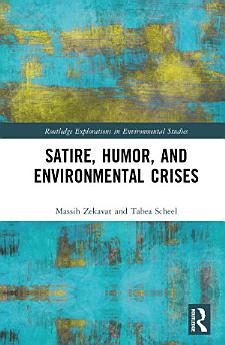Satire, Humor, and Environmental Crises
এই ইবুকখনৰ বিষয়ে
Besides scientific and technological endeavors, solutions to ecological crises must entail social and communicative reform to persuade citizens, corporations, organizations, and policymakers to adopt more sustainable lifestyles and policies. This monograph reassesses environmental behavior and messaging and explores the promises of humorous and satiric communication therein. It draws upon a solid and interdisciplinary theoretical foundation to explicate the individual, social, and ecospheric determinants of behavior. Creative works of popular culture across various modes of expression, including The Simpsons, Last Week Tonight with John Oliver, and The New Yorker cartoons, are examined to illustrate the strong if underappreciated relationship between humor and the environment. This is followed by a discussion of the instruments and methodological subtleties involved in measuring the impacts of humor and satire in environmental advocacy for the purpose of conducting empirical research. More broadly, the book aspires to participate in urgent cultural and political discussions about how we can evaluate and intervene in the full diversity of environmental crises, engage a broad set of internal and external partners and stakeholders, and develop models for positive social and environmental transformations.
This book will be of great interest to students and scholars interested in environmental humanities, communication science, psychology, and critical humor studies. It can further benefit environmental activists, policymakers, NGOs, and campaign organizers.
লিখকৰ বিষয়ে
Massih Zekavat is researcher and postdoctoral fellow at the Center for Language and Cognition Groningen, Faculty of Arts, The University of Groningen, The Netherlands, and former Alexander von Humboldt Foundation postdoctoral fellow at Europa-Universität Flensburg, Germany.
Tabea Scheel is professor in the Department of Work and Organizational Psychology, International Institute of Management and Economic Education, Europa-Universität Flensburg, Germany.




